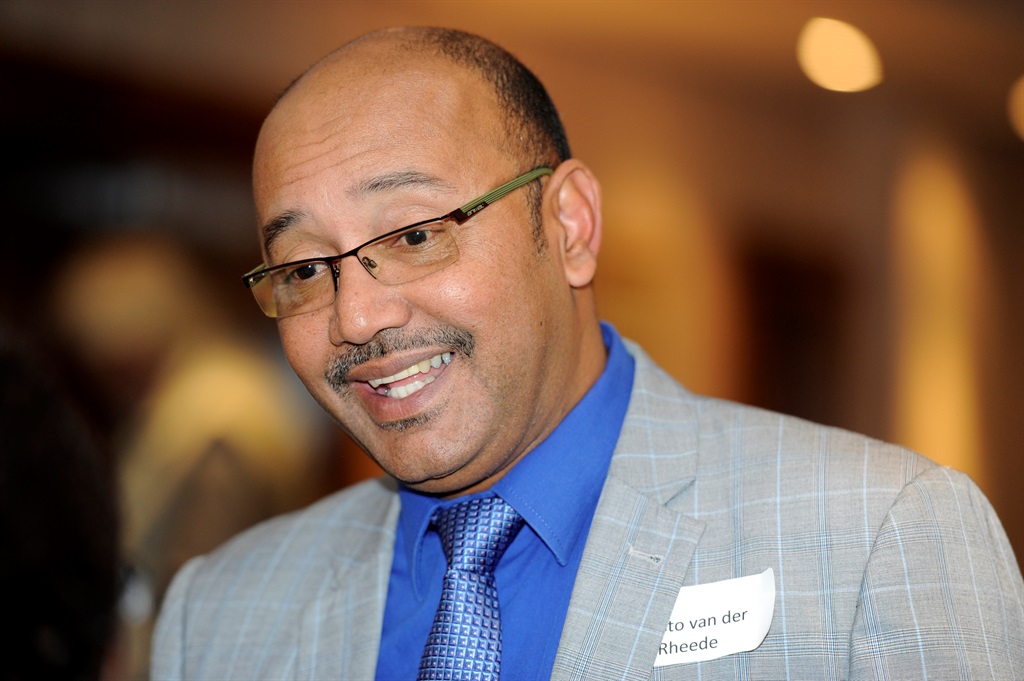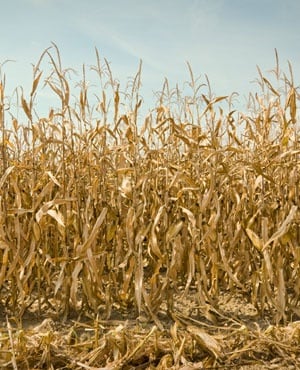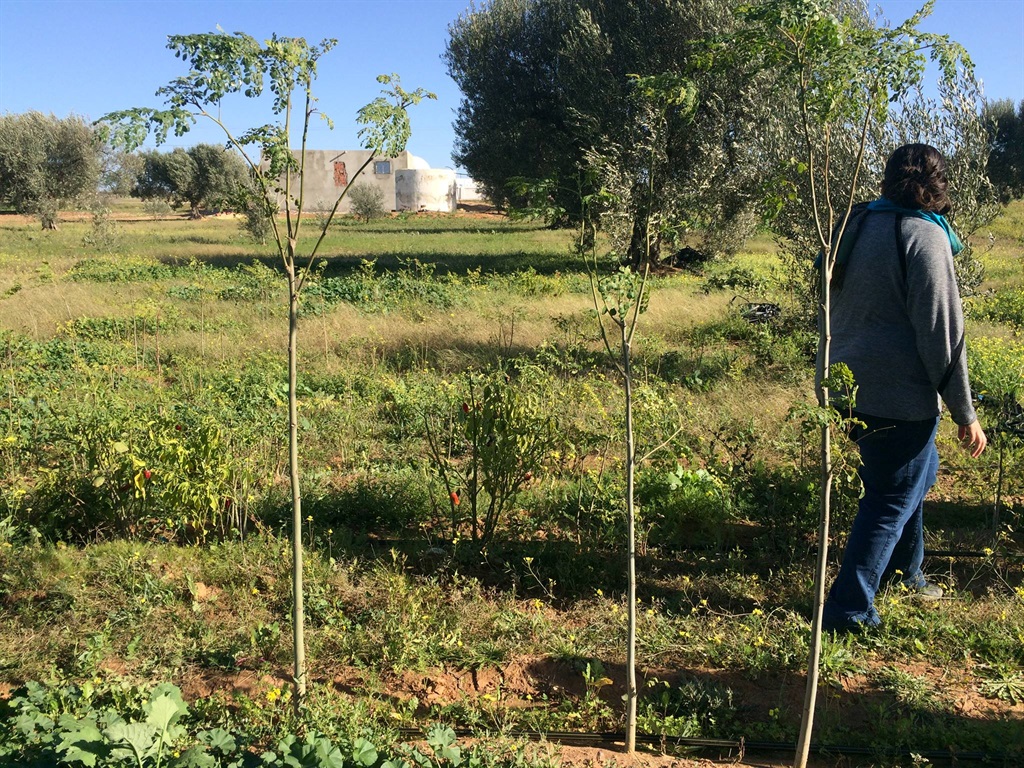
Thousands of farmers are bleeding financially as the lack of rain persists
The names of 400 commercial farmers in the Northern Cape – who are facing financial ruin as a result of the debilitating drought – have been handed to South Africa’s commercial banks in a desperate bid to save their farms.
Christo van der Rheede, the deputy CEO of Agri SA, confirmed that the list had been handed to the banks, saying each farmer’s case would be considered on its own merits.
The banks would consider various options, such as the renewal of loans, bridging finance or soft loans, as well as the possibility of including special allowances for repayment periods.
In addition to these farmers, there are hundreds of other farmers across South Africa trying to renegotiate their debt and loan repayments with financial institutions and agricultural societies.
Willem Symington, head of Agri SA’s disaster management centre, said there were about 150 000 farms in the Northern Cape that were experiencing sustained drought.
The drought is affecting more than 20 million hectares of farmland and about 613 000 livestock units (one unit is equivalent to one cow or five sheep).
The widespread drought that has plagued the country since 2013 is not only affecting harvests, but also the game, meat, milk and fruit industries, officials from Agri SA said at a presser, held in Centurion on Tuesday.
In the first half of the year, real agricultural output was 9.2% lower than the corresponding period last year.
About 37% of South Africa’s rural community is being affected by the drought, considered the worst in the past 100 years.
Agri SA estimates that commercial and emerging farmers need immediate assistance for livestock feed to the tune of R1 billion – and this time, it says, government should not only assist upcoming farmers but also commercial farmers.
Northern Cape farmers will need R425 million in drought aid over the next three months.
This could rise to R612 million if current drought conditions continue into December.
Altogether, 5 500 farmers (2 500 commercial and 3 000 emerging farmers) need assistance, but if it does not rain soon, this number will double by December.
Adding to the negative effect that the drought is having on food security for South Africa and its neighbours are job losses: the agricultural sector indicated earlier this year that it had already lost about 30 000 employment opportunities.
The meat industry has also suffered at least R10 billion in damage as a result of an outbreak of foot-and-mouth disease, and another R16 billion as a result of lower slaughter volumes, said Gerhard Schutte, CEO of the Red Meat Producers’ Organisation.
Some of the farmers in the Northern Cape have only 30% of their core herds remaining and have to slaughter increasing numbers because of a lack of feed.
Wiehahn Victor, who represents the Canning Fruit Producers’ Association, said the Western Cape’s agricultural exports were already 25% lower than the average for the five years between 2008 and 2012.
In the Klein Karoo, about 300 hectares of fruit trees have already been lost, mostly stone fruits such as apricots, peaches and prunes. Trees are battling to survive, which also affects the quality and size of the fruit.
Chris van Dijk, of the Milk Producers’ Organisation, said scores of milk farmers wanted to throw in the towel.
In the Free State and North West, 66% and 50% of milk farmers, respectively, want to give up their operations as a result of financial pressures related to more expensive feed, lower production, low producer prices and the lack of water.
For every litre of milk that a cow produces a day, she requires two to three litres of water.
The game industry is also feeling the harsh effects of the drought.
Adri Kitshoff-Botha, from Wildlife Ranching SA, said Northern Cape game farmers had already lost 80% of their animals and feared that only 5% would survive if it did not rain soon.
Eastern Cape farmers have lost 300 000 animals, even after herd sizes were reduced.
Agri SA’s drought relief fund, which relies on donations, has paid out more than R20 million in aid to farmers, and farmers in need have received another R100 million in aid, in the form of transport and humanitarian assistance, according to Van der Rheede.
Symington said that declaring the drought a national disaster was not necessary at this stage, but large parts of the Eastern Cape, Western Cape, Northern Cape and Limpopo were declared disaster areas last year.
Jannie de Villiers, head of Grain SA, said maize farmers in the eastern parts of the country (Mpumalanga and KwaZulu-Natal) should have planted crops already, but the lack of rainfall had rendered them unable to do so.
In the western parts of the country, farmers can still plant until Christmas, and it is hoped that it will rain before then.
De Villiers said Grain SA was concerned about the financial position of grain farmers as they were losing capacity.
As a result of the sustained drought, he added, farmers could no longer recover losses over one or two good years.
It would now take them much longer to do so.
Wheat farmers in the Western Cape have just experienced their third bad season out of the past five. The wheat crop for 2019 is expected to yield about 1.69 million tons, compared with last year’s 1.86 million tons.
Even though a greater hectarage has been planted this year, the production was 208 000 tons less.
In the bushveld region in Limpopo, no planting has been done and many animals have perished.
In the Lephalale region, feed is distributed on a daily basis, thanks to private businesses and farmers helping each other out.
Free State maize farmers are also battling.
For many, the current crop was their last chance to prevent banks from repossessing their property, and many others can no longer obtain production credit to plant maize.
Another consequence of the drought has been a plunge in property values, which means farms can no longer be offered as security against which money for input costs can be loaned.
Agri SA is urging government to take the following action: declare disaster areas more speedily to prevent commercial and emerging farmers from going under; put early warning systems in place for drought conditions; and establish a national drought management commission that can develop an effective and systematic assessment of drought conditions for government.
According to De Villiers, the grain industry has been asking government to help farmers with insurance premiums for multiple threats since Nhlanhla Nene was first appointed minister of finance, in 2014. This is a common practice in many other parts of the world. The request is now back with Treasury.
Wandile Sihlobo, an agricultural economist and head of agribusiness research at the Agricultural Business Chamber, wrote in his weekly agricultural market assessment that government should not only use the Article 7 Committee within the National Agricultural Marketing Council on an ad hoc basis, but on an ongoing one.
He added that it should examine the effects of natural disasters and how they can be responded to on a full-time basis.
“It is an important committee because it involves government and various agricultural groups.”
CLIMATE CRISIS
Since 2013, South Africa and southern Africa have been locked in a drought cycle that could end up threatening food security.
Symington said various parts of southern Africa were experiencing threats to food security, including southern Angola, Botswana, Zimbabwe, Namibia and parts of Lesotho.
The effects of climate change in eastern and southern Africa mean more than 35 million people, of whom 50% are children, need humanitarian aid.
 | ||||||||||||||||||||||||||
Get in touchCity Press | ||||||||||||||||||||||||||
| ||||||||||||||||||||||||||
| Rise above the clutter | Choose your news | City Press in your inbox | ||||||||||||||||||||||||||
| City Press is an agenda-setting South African news brand that publishes across platforms. Its flagship print edition is distributed on a Sunday. |




 Publications
Publications
 Partners
Partners










